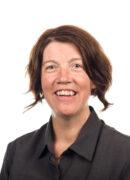Course Information
| Session |
|---|
| Credits | 2.25 CEUs or 22.5 PDHs |
|---|---|
| Registration dates | We accept registrations through the first week of classes, unless enrollment is full, and unless the class was canceled before it started due to low enrollment. |
$375.00
Dates: August 3 - September 13Credits: 2.25 CEUs or 22.5 PDHs
This course provides a framework for those interested in successfully integrating support for multimodal communication skills into their curriculum. Technical communication skills may include support for podcasting, video production, graphic design or mixed reality environments. Librarians have new roles outside of the public perception of simply managing collections and providing research assistance. Focuses of librarianship and archival work have expanded to include multimedia skills, educational technology, data science and more. This is largely a reflection of the changing educational landscape and how we define library services and resources. Through this kind of programming, we assist students, researchers, and library users in communicating their work to a broad audience via multiple modalities with technical communication skills.
Libraries provide a space for self-exploration and easy accessibility to advanced technologies and open educational resources. By providing low stakes environments to play and experiment with newer technology, students/users are less likely to experience technology- phobia or reticence. Additionally, library users who may not have been afforded opportunities to work with emerging technologies and specialized resources can be provided access to the technology through the library at zero cost.
Broken down into 5 segments this course will cover best practices for:
I. Introduction and Overview to technology focused programming
II. Developing programming in support of Visual Communication skills
III. Developing programming in support of Video based work
IV. Developing programming in support of Audio podcasts and sound-based projects
V. Initiatives with Emerging technologies (AR/VR/XR)
Attendees will leave the session having developed at least one sample lesson plan or program concept to implement at their own institution. Attendees will be encouraged to share ideas and learn through group discussions. Attendees will also develop skills and leave with resources they may use to assess their organization’s state of readiness to offer this programming, as well as measure the program’s success if implemented.
| Session |
|---|
| Credits | 2.25 CEUs or 22.5 PDHs |
|---|---|
| Registration dates | We accept registrations through the first week of classes, unless enrollment is full, and unless the class was canceled before it started due to low enrollment. |
This course provides a framework for those interested in successfully integrating support for multimodal communication skills into their curriculum. Technical communication skills may include support for podcasting, video production, graphic design or mixed reality environments. Librarians have new roles outside of the public perception of simply managing collections and providing research assistance. Focuses of librarianship and archival work have expanded to include multimedia skills, educational technology, data science and more. This is largely a reflection of the changing educational landscape and how we define library services and resources. Through this kind of programming, we assist students, researchers, and library users in communicating their work to a broad audience via multiple modalities with technical communication skills.
Libraries provide a space for self-exploration and easy accessibility to advanced technologies and open educational resources. By providing low stakes environments to play and experiment with newer technology, students/users are less likely to experience technology- phobia or reticence. Additionally, library users who may not have been afforded opportunities to work with emerging technologies and specialized resources can be provided access to the technology through the library at zero cost.
Broken down into 5 segments this course will cover best practices for:
I. Introduction and Overview to technology focused programming
II. Developing programming in support of Visual Communication skills
III. Developing programming in support of Video based work
IV. Developing programming in support of Audio podcasts and sound-based projects
V. Initiatives with Emerging technologies (AR/VR/XR)
Attendees will leave the session having developed at least one sample lesson plan or program concept to implement at their own institution. Attendees will be encouraged to share ideas and learn through group discussions. Attendees will also develop skills and leave with resources they may use to assess their organization’s state of readiness to offer this programming, as well as measure the program’s success if implemented.
 Alison Valk is the Multimedia and Emerging Technologies Librarian for the Georgia Tech Library, a position held since 2010. She studied art at the University of Georgia and holds a BBA in Computer Information Systems from Georgia State University and a Master's in Library and Information Studies from Florida State University. In 2016, she became the program manager and service owner of the Library's Media Scholarship Commons. She coordinates the multimedia services and training, having over a decade of experience designing educational programs. She teaches approximately 100 workshops a year on professional multimedia software, including tools for video/ audio editing and graphic design. She currently leads research initiatives focused on the use of virtual reality and emerging technologies in libraries. Her book, Making Virtual Reality a Reality, discussing this work, was published in 2023.
Alison Valk is the Multimedia and Emerging Technologies Librarian for the Georgia Tech Library, a position held since 2010. She studied art at the University of Georgia and holds a BBA in Computer Information Systems from Georgia State University and a Master's in Library and Information Studies from Florida State University. In 2016, she became the program manager and service owner of the Library's Media Scholarship Commons. She coordinates the multimedia services and training, having over a decade of experience designing educational programs. She teaches approximately 100 workshops a year on professional multimedia software, including tools for video/ audio editing and graphic design. She currently leads research initiatives focused on the use of virtual reality and emerging technologies in libraries. Her book, Making Virtual Reality a Reality, discussing this work, was published in 2023.
Reviews
There are no reviews yet.